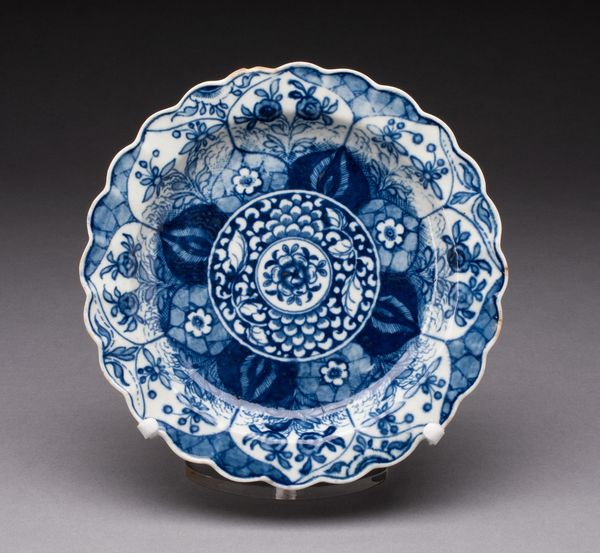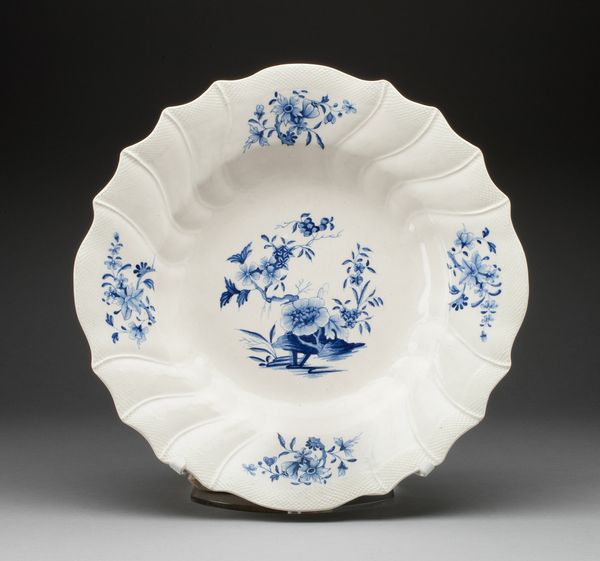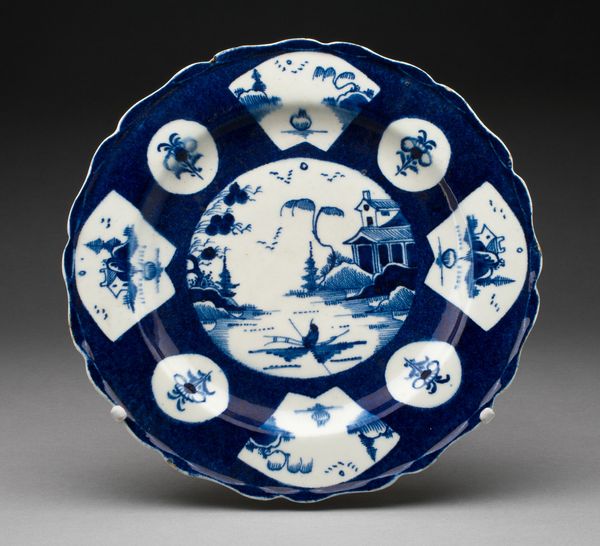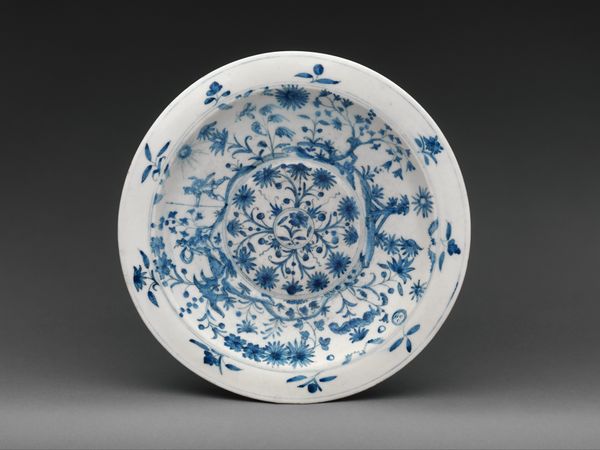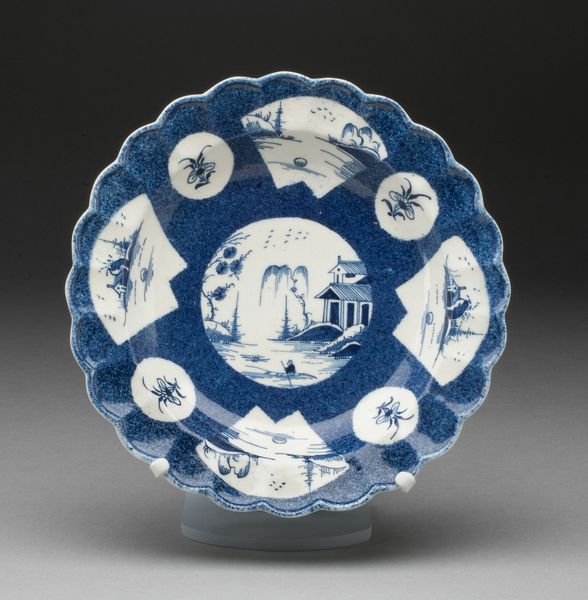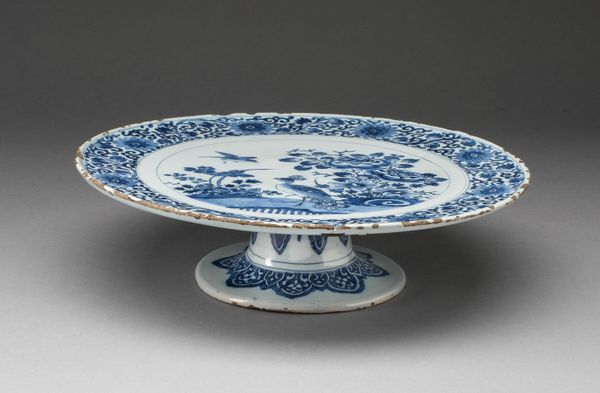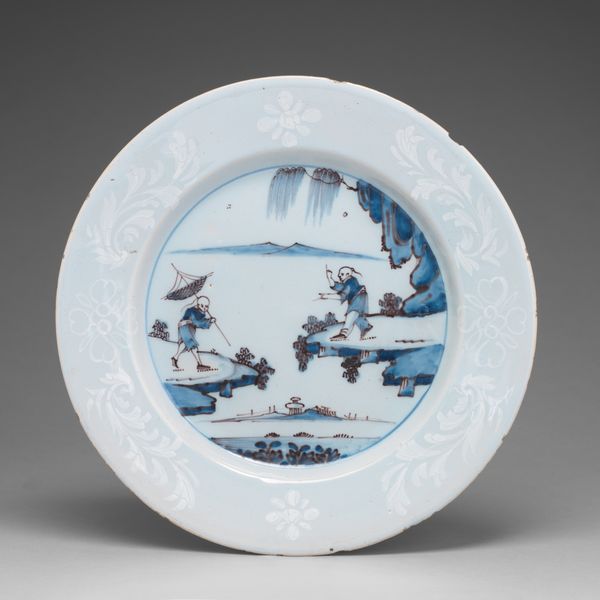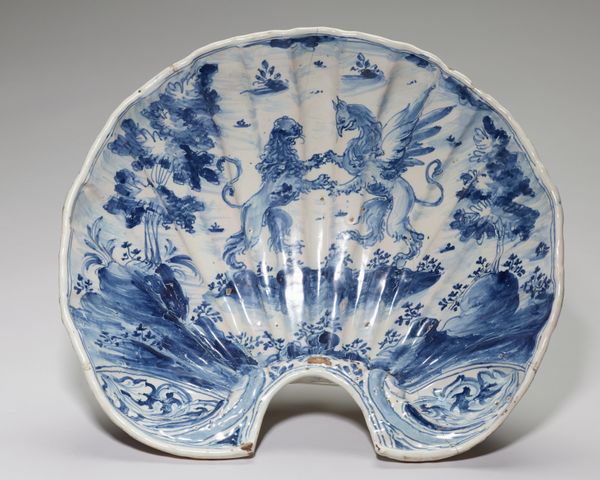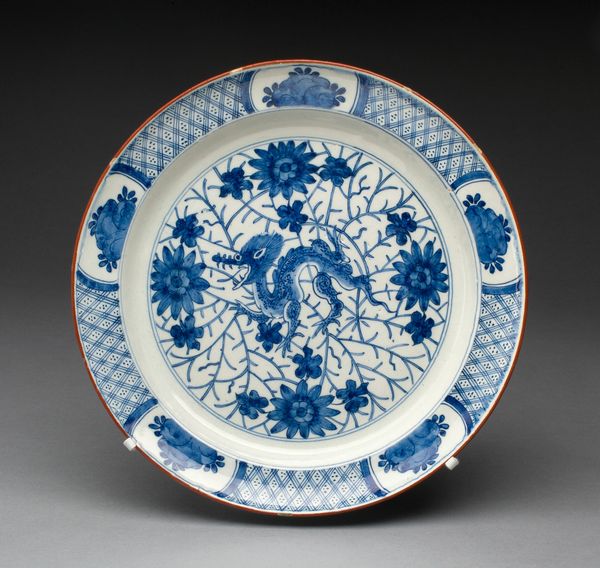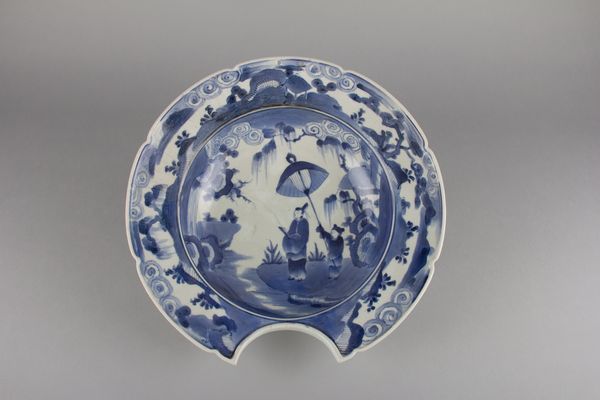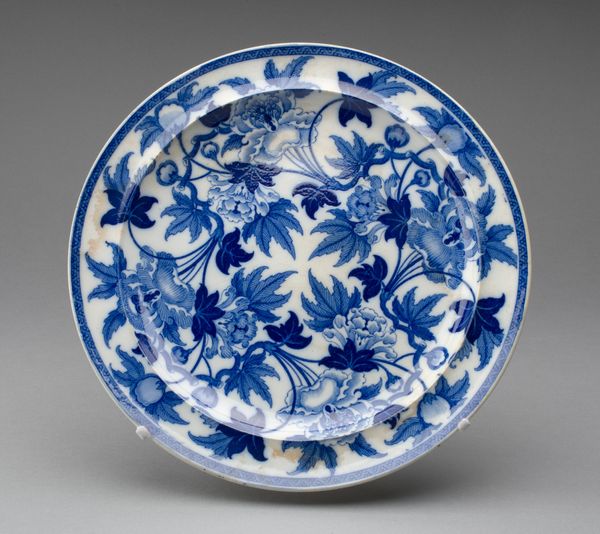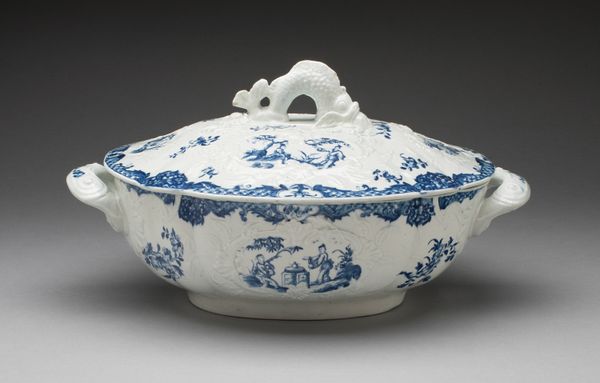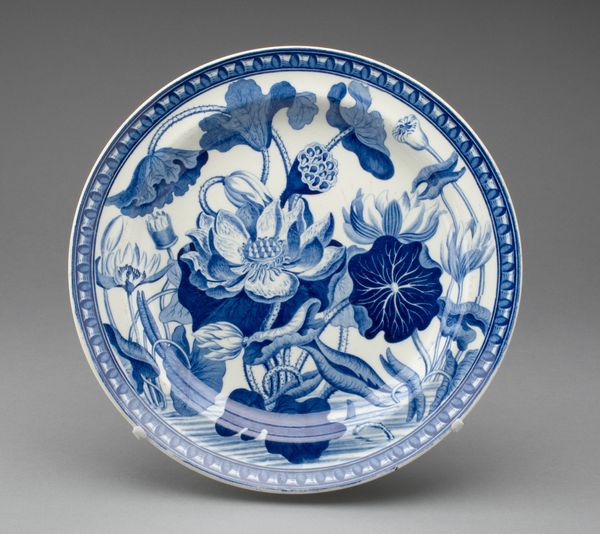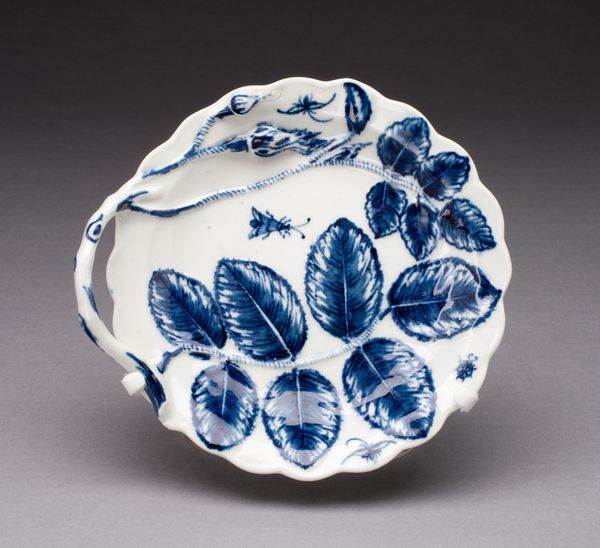
ceramic, earthenware
#
decorative element
#
ceramic
#
earthenware
#
orientalism
#
ceramic
#
decorative-art
Dimensions: H. 3.9 cm (1 1/2 in.); diam. 21.5 cm (8 7/16 in.)
Copyright: Public Domain
Editor: This earthenware bowl, dating back to around 1700, was crafted by the Frankfurt-am-Main Pottery. I'm really drawn to its simple color palette, but what strikes me most is the, what feels like, imitation of Asian motifs. What do you see when you look at it? Curator: I see a product deeply embedded in a complex network of material exchange and labor. Earthenware itself, a humble material, speaks to the everyday consumer. It’s not porcelain, the prized commodity, but a more accessible form of ceramic. The "orientalism" tag highlights the West's fascination with the East during this period. The decorative elements are not simply aesthetic; they signify trade routes, colonial ambitions, and the commodification of culture. How does that labor manifest in this bowl? Editor: That’s fascinating! It makes me think about who was making these objects and under what conditions. I guess, I hadn’t thought about the labor involved; I was mainly considering the aesthetic influence. I mean, what were the actual working conditions? Who would’ve been buying this bowl? Curator: Exactly! Consider the potter: what was his life like? What was his level of skill? How were these skills taught? Consider that labor practices were highly varied and unregulated. Also, note that this bowl could've been purchased by someone aspiring to a higher social standing through conspicuous consumption. So, this wasn't "high art," but rather functional ware aiming for a larger share of a bustling consumer market, using global motifs to add a veneer of exoticism. Editor: So it's more about consumption than expression. Curator: Precisely. Its value resides not in some abstract idea of beauty, but in the historical and material processes that gave it form and function. The "decorative element" AI tag points us to this. We should then ask: What function does decoration play in a world of objects and consumerism? Editor: That’s such a different way to think about art! I hadn't considered the social implications. Curator: Art and social implications are inseparable. Looking closely at material and labor brings that home.
Comments
No comments
Be the first to comment and join the conversation on the ultimate creative platform.
